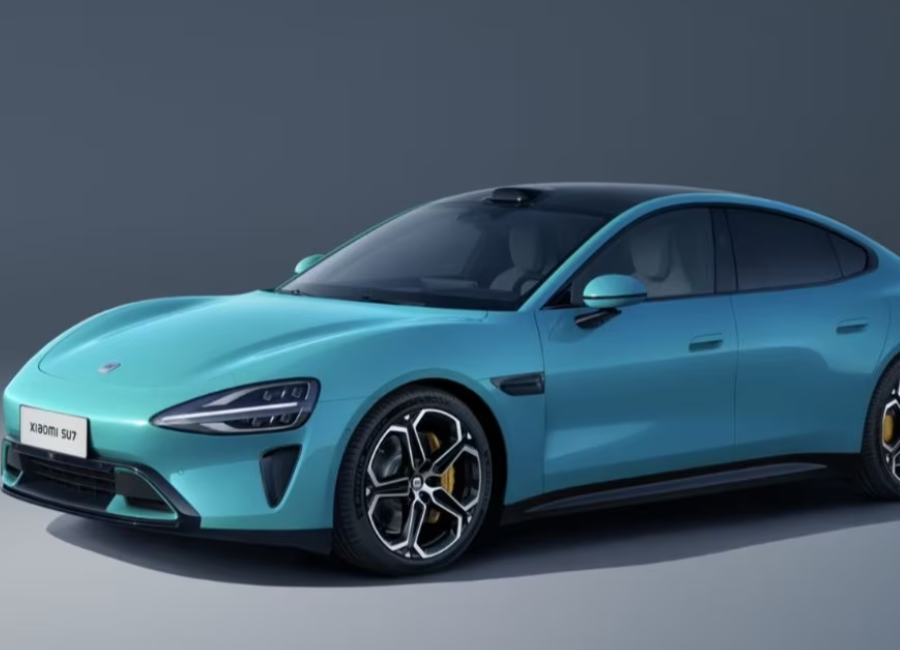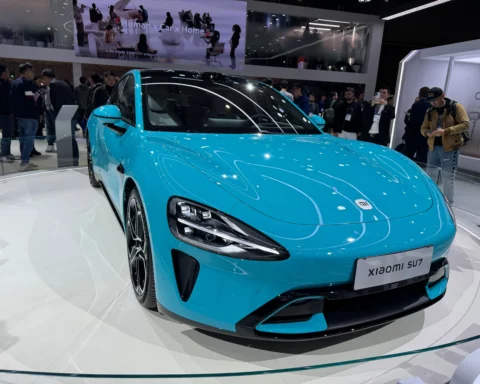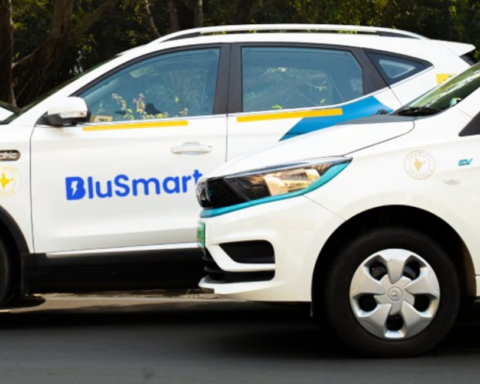Chinese technology giant Xiaomi has unveiled its debut electric vehicle (EV), the SU7, marking its entry into the competitive electric car market. The sedan, named SU7 (Speed Ultra), is set to launch in the coming months and is part of Xiaomi’s ambitious plan to establish itself among the world’s top five automakers. The company, known for its smartphones and consumer electronics, aims to leverage its technological expertise and brand recognition in the automotive sector.
The Xiaomi SU7 is offered in two variants: SU7 and SU7 Max. The standard SU7 is a rear-wheel-drive model, while the SU7 Max boasts an all-wheel-drive configuration. The specifications for both variants are as follows:
**Xiaomi SU7 Specifications:**
– Acceleration: 0-100 kmph in 5.28 seconds
– Claimed range: 668 km
– Top Speed: 210 kmph
– Power: 299 PS
– Torque: 400 Nm
**Xiaomi SU7 Max Specifications:**
– Acceleration: 0-100 kmph in 2.78 seconds
– Claimed range: 800 km
– Top Speed: 265 kmph
– Power: 673 PS
– Torque: 838 Nm
Xiaomi’s foray into the electric car market aligns with its broader strategy to diversify beyond its core business of smartphones, especially amid the slowdown in demand for smartphones in China. Lei Jun, Xiaomi’s CEO, expressed optimism about the company’s automotive ambitions, stating, “By working hard over the next 15 to 20 years, we will become one of the world’s top 5 automakers, striving to lift China’s overall automobile industry.”

One notable feature of the SU7 is its shared operating system with Xiaomi’s popular phones and electronic devices. This integration allows for seamless access to Xiaomi’s existing portfolio of mobile apps, enhancing the user experience for drivers. The car is expected to appeal to consumers who are already familiar with Xiaomi’s ecosystem.
Despite Xiaomi’s entry into the electric vehicle space, the company faces challenges in a market dominated by established players. The SU7 will compete with electric cars from Tesla and other automakers, and success will depend on factors such as performance, pricing, and the overall reception of Xiaomi’s brand in the automotive sector.
Xiaomi’s stock experienced a marginal decline of 0.3% following the EV announcement. The company has committed to investing $10 billion in the automotive sector over the next decade. Xiaomi is among the few new entrants in China’s electric vehicle market to receive regulatory approval, indicating its seriousness about establishing a presence in the rapidly evolving industry.
The SU7 is positioned as having “super electric motor” technology, promising acceleration speeds that rival those of Tesla cars and Porsche’s EVs. The vehicle offers competitive driving ranges, with the SU7 Max boasting an impressive 800 km on a single charge. The cars will be manufactured by a unit of the state-owned automaker BAIC Group in a Beijing factory with an annual capacity of 200,000 vehicles.
As Xiaomi joins the electric car race, its ability to leverage its technological prowess, capitalize on its brand strength, and navigate the challenges of the automotive market will determine its success in achieving its ambitious goals. The company’s entry underscores the increasing convergence of technology and mobility, with traditional tech companies venturing into the electric vehicle space.








